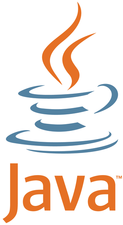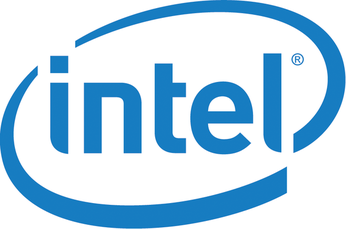Tech Tools
Tech Tools

- New Intel Xeon Phi
- Intel-HP HPC Center
- Oracle Supports Azure Cloud
- Wayland 1.2 Released
- Java Enterprise Edition 7 Released
Intel Announces New Processors and a New Project
Chip giant rolls out new Xeon Phi coprocessors and joins with HP to announce a new HPC center. Intel and HP recently announced new plans to expand their high-performance-computing activities. Intel's Vice President of Datacenter & Connected Systems Group, Rajeeb Hazra, presented three new families of Xeon Phi coprocessors as part of his keynote address at the International Supercomputing Conference (ISC'13). The new 7100 family has the highest performance and the most memory. The 3100 family is lower-priced but not so powerful. The 5100 Family has been optimized for very high packing density. A predecessor of the newly released Xeon Phi models just made the news as part of China's Tianhe-2, the worlds fastest supercomputer.
Intel has also joined with HP to establish a Joint Open Centre of Excellence for High Performance computing in Grenoble, which will help customers, developers, and manufacturers with benchmarks and proof-of-concept projects in the field of energy efficiency research.
Oracle Announces Support for the Azure Cloud
Java, WebLogic, and other tools will receive official Oracle support in Microsoft's expanding cloud empire. Oracle and Microsoft have announced a partnership that will bring Oracle software to Microsoft's Windows Azure cloud and the Windows Server Hyper-V virtualization environment. Under the terms of the agreement, Azure and Hyper-V users will have the option of official Oracle support for software products such as Java, Oracle Database, Oracle WebLogic Server, and Oracle Linux.
According to Microsoft CEO Steve Ballmer, "Microsoft is deeply committed to giving businesses what they need, and clearly that is the ability to run enterprise workloads in private clouds, public clouds, and, increasingly, both. "Now our customers will be able to take advantage of the flexibility our unique hybrid cloud solutions offer for their Oracle applications, middleware, and databases, just like they have been able to do on Windows Server for years."
Official support for these popular Oracle software products lends credibility to Microsoft's efforts to present Azure as an enterprise-ready cloud alternative. From Oracle's viewpoint, the new agreement can only lead to new customers and a new channel for selling their support services. Additional terms of the contract were not specified.
Java Enterprise Edition 7 Released
After a long wait, Oracle has finally released the latest version of the Java Enterprise Edition. Members of the Java Community Process (JCP) approved new standards for the Java Enterprise Edition in April, and Oracle has now officially announced the availability of Java Enterprise Edition 7.
According to the announcement, Java EE 7 programming now includes more additional interactive web applications based on HTML5 and places greater reliance on the bidirectional WebSockets protocol.
For data exchange, Java EE 7 has Javascript JSON serialization. Web Services and the REST architecture are supported by the new JAX-RS 2.0 specification. Additionally, the latest version of the GlassFish Application Server 4.0 is compatible with the current Java Enterprise standard.
The SDK is available for download on the Java EE 7 SDK downloads page.
Wayland 1.2
Wayland project has released the Wayland 1.2 graphics system. Wayland is intended as a full replacement for the X graphics stack that has been a fixture in Unix and Linux systems for many years. The new release includes numerous minor bug fixes, as well some significant improvements compared with version 1.1, which was released three months ago.
The wayland-server component now has a stable API that external developers and compositors can use to extend the system. Other advances include improvements in color management. The Wayland Input Method Framework is now feature complete, but not yet part of the official Wayland API because additional testing is necessary. Wayland 1.2 supports HiDPI mode, which utilizes the high resolution of many current laptop displays.
The system also comes with a Raspberry Pi back end and renderer. The Libwayland client has a higher thread-safety, which will help to remove incompatibilities with the EGL graphics interface. Multi-seat is also supported and can be configured through udev settings. A sample client included with the release is intended to demonstrate the idea of Application compositors.
